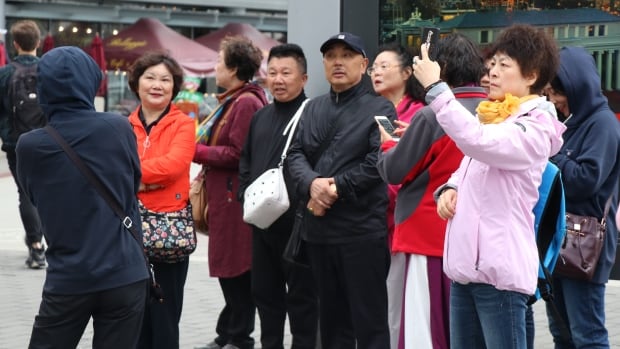B.C. tour operators are calling on the federal government to thaw relations with China, after it emerged that the Chinese government left Canada off a list of countries approved for tour groups.
As international travel picks up following the end of COVID-19 restrictions, the Chinese foreign ministry announced that 78 countries had been added to a list of destinations approved for group tours and travel packages — which did not include Canada.
The public affairs office at the Chinese embassy in Ottawa wrote that the decision came as “lately, the Canadian side has repeatedly hyped up the so-called ‘Chinese interference’ and rampant and discriminatory anti-Asian acts and words are rising significantly in Canada.”
China is the second-largest market for international travellers to B.C., according to provincial Crown corporation Destination B.C. — meaning China’s decision to exclude Canada could significantly hit the provincial tourism industry’s bottom line.
Monica Leeck, the market development manager for Asia Pacific and Mexico at Destination B.C., told CBC News that nearly 334,000 Chinese travellers came to B.C. in 2019.
“Prior to the pandemic, we had over 50 flights a week from various Chinese cities into Vancouver,” she said. “It was a really big market for us.”
While individual tourists can still plan trips to B.C., the lack of tour groups could pose a challenge. According to the World Tourism Organization, roughly 60 per cent of mainland Chinese tourists’ spending abroad, pre-pandemic, were with group tours.
Leeck said Chinese tourists spent the most on average when they came to B.C., and that the average spend per person was $2,021 — far more than Australian tourists, who spent approximately $1,800 per person.
Walt Judas, CEO of the Tourism Industry Association of B.C., said Chinese tourists liked to spend on tour-related activities and amenities, including tour buses and cultural activities.
“Many tourism operators and businesses, including retail, they catered specifically to the Chinese market,” Judas said. “Not having the volume that we had prior to the pandemic back in our country and our province means that many of those operators are hurting.”
Glynnis Chan, owner of Vancouver-based Happy Times Travel, said her business primarily deals with travel to and from China and Asia.
“I feel kind of a little bit frustrated,” she said of the latest decision.
“We don’t see the green light to help us to pick up our regular business as [in] 2019 or before.”
Call for mending of relations
Leeck said B.C.’s tourism industry had started to show signs of recovery as pandemic restrictions were dropped, and that hotels across B.C. had a 78 per cent occupancy rate at the end of June.
However, according to Judas, the lack of Chinese tour groups, and their big spending, could be detrimental in the long haul.
“We certainly hope that our governments are able to co-operate and see eye-to-eye,” he said. “We’d like to see that done in fairly short order.
“We would encourage our federal governments to really sort out their differences so that we can get back on track.”
A spokesperson for B.C.’s tourism ministry said Destination B.C. would continue to market the province to Chinese travellers through travel media and “monitor China’s tourism destination recommendations as they evolve.”


